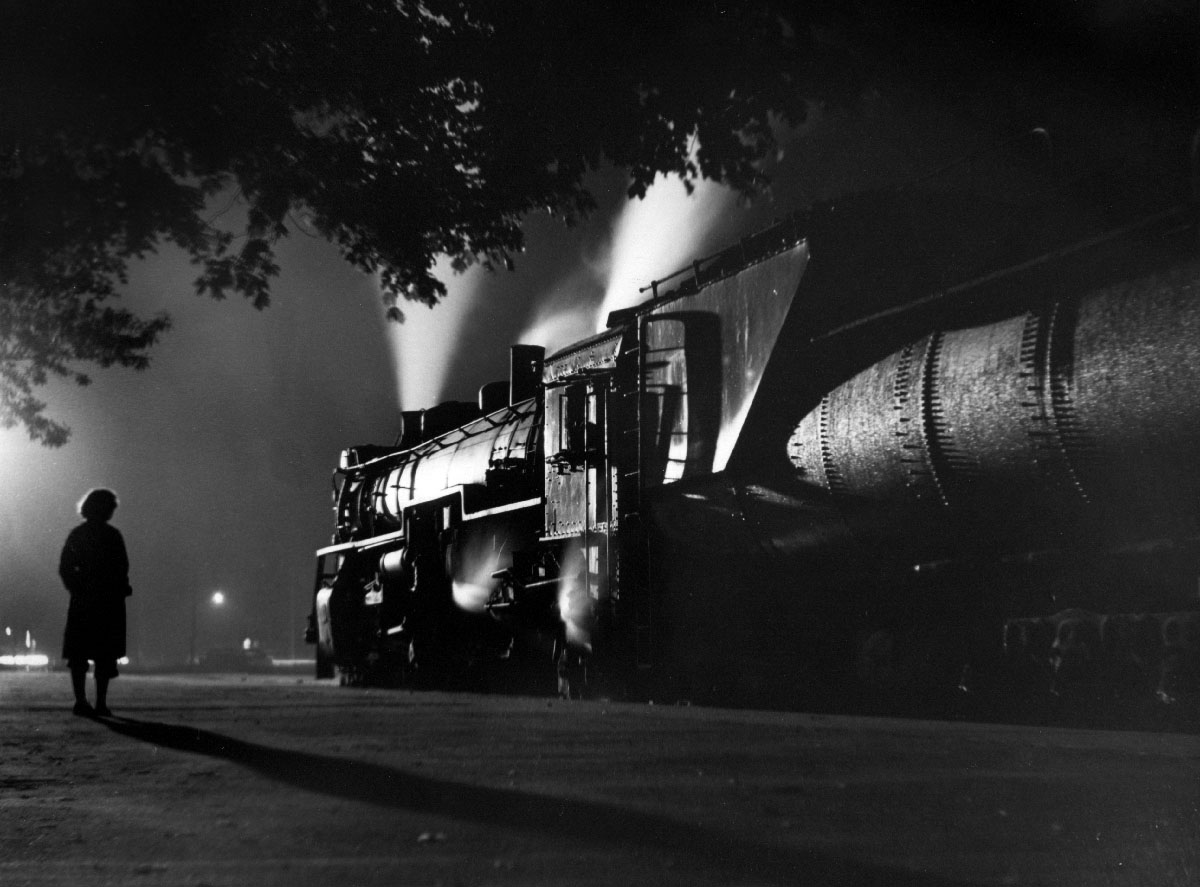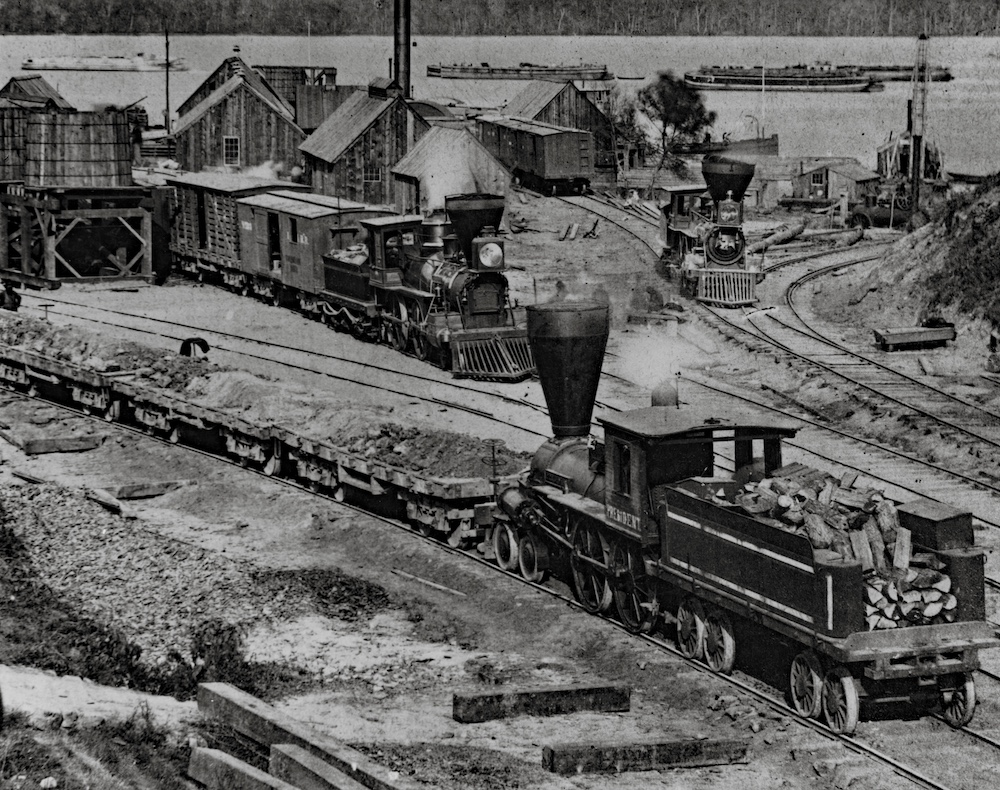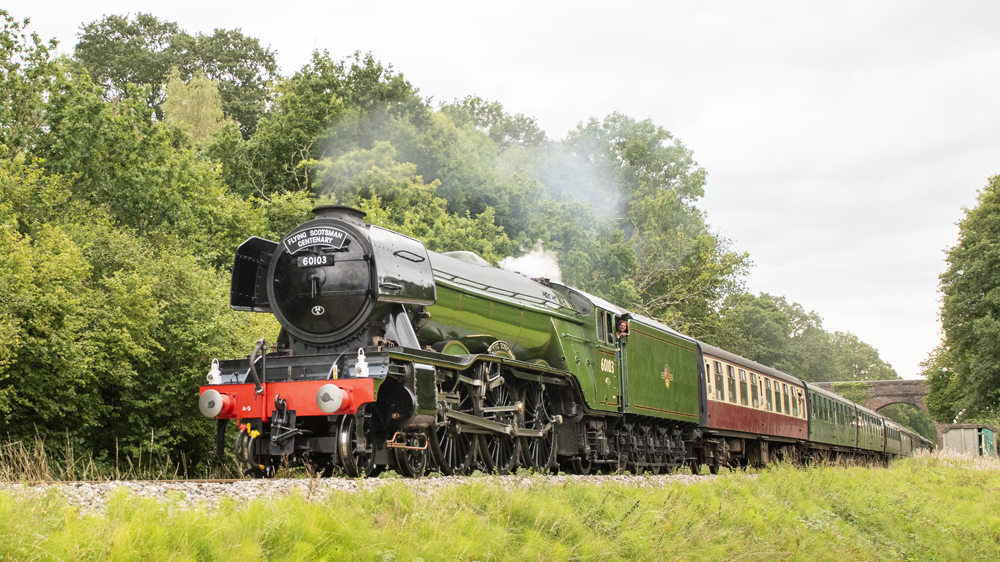
 [Ed. — This adventure is excerpted from a story originally appearing in Trains, September 1984. It, along with 45 other railroad stories, can be found in a forthcoming Trains/Classic Train book: Tales of the Rails, due out in March 2026. Visit shop.trains.com to order your copy.]
[Ed. — This adventure is excerpted from a story originally appearing in Trains, September 1984. It, along with 45 other railroad stories, can be found in a forthcoming Trains/Classic Train book: Tales of the Rails, due out in March 2026. Visit shop.trains.com to order your copy.]
On June 27, 1955, I witnessed a veteran locomotive engineer and passenger-train conductor conspiring to violate bulletin provisions as issued by the Chicago Division superintendent of the Grand Trunk Western. Time has blurred recalling the specific language, but in effect it read: “Conductors and Engineers of passenger trains will include in their delay reports, duration and reason for all stops not authorized by Timetable or Train Dispatcher. Failure to comply with this Bulletin may result in an investigation.”
In 1955, train No. 14 operated from Chicago to Toronto. On the Chicago Division, No. 14 was scheduled to leave Chicago at 8:10 p.m., CST, and arrive at Battle Creek, Mich., at 11:35 p.m., with scheduled stops at Chicago Lawn, Ill., and Valparaiso and South Bend, Ind., plus conditional stops at Cassopolis and Vicksburg, Mich. In 1955, GTW and the Pennsylvania’s former Grand Rapids & Indiana line to Mackinaw City crossed at Vicksburg, and an operator-ticket agent was on duty 24 hours a day.
On the night of the conspiracy, Jack Hansom was No. 14’s engineer and I was fireman. The names of the train crew have long been forgotten, but the conductor was an old-timer. We took coal and water about 3 miles west of South Bend, so the engine now had enough fuel and water to run to Lansing, Mich.; it then would go on to Port Huron. During the station stop at South Bend, I noticed the conductor hurrying along the platform toward our engine. I told the engineer, and he quickly left the cab and walked back to meet him.
The conductor told him, “We have a young lady on the train with a ticket for Marcellus. She has been to a church summer camp in Wisconsin. The ticket agent up there must have figured that No. 20’s conditional stop at Marcellus also applied to No. 14. She has notified her folks that she will be on No. 14 tonight. When she got on the train at Chicago, we thought that she was with a couple going to Lansing, so we didn’t question her about her destination until we were collecting tickets.”
Jack answered like the veteran engineer he was. “The right big end is running warm. Marcellus is a good halfway point to pump a few sticks of grease into it and decide if an engine change will have to be made at Battle Creek. If you see me go to the telephone box, you will know that I asked for an engine change.”
“I’ll have her ready to get off,” replied the conductor, “but if there isn’t anyone there to meet her, we’ll have to stop again at Vicksburg. I can’t leave her at an unmanned station in the middle of the night.”
Before we reached Marcellus, the engineer had “made ready.” The right cab door was open. The grease gun, the pail of grease sticks, and the torch were sitting in the open doorway. After we stopped, Jack opened the firebox door, extending the torch wick toward the fire until it ignited, and then climbed down the cab ladder with the torch and grease gun. I handed him three or four grease sticks. In less than a minute, he returned with an extinguished torch, the grease gun, and no grease sticks. He gave two light toots of the whistle and looked back for a hand signal to proceed.
As we were leaving town, he yelled across the cab over the engine exhaust noise, the stoker engine, and the stoker steam jets, “The engine is OK to run through!”
At Battle Creek, the engine crews’ home terminal, we were relieved by the engineer and fireman who would take No. 14 to Port Huron (the train crew operated from Chicago to Port Huron). The enginemen’s shanty was located near the east end of the platform, and after putting my overalls in my locker and washing up, I stalled until I had a chance to read the engineer’s delay report. The part I was interested in read: “Marcellus 10:52 p.m. to 10:54 p.m. Grease and inspect right big end.”
As I was leaving the shanty, the conductor entered. I lingered and heard him say to Jack, “When we pulled into Marcellus, I kept shining my lantern around in the dark but couldn’t see anybody. I was about to give you a signal to leave town when a young boy yelled out of the dark, ‘Gee whiz, Mary, you must be a real big shot. This train ain’t even supposed to stop here.’”
I never asked Jack what he did with the sticks of grease.














The last run of a K-4s on the NY&LB was 11/4/1957.
Steam? The year of the story being 1955. As many of you know, GTW stuck with steam years after other railroads wised up and bought diesels. Can’t say for sure but I assume it was the same on parent Canadian National.
If I recall correctly, I believe I once read that the last scheduled steam on an American passenger train was on the Detroit (Brush Street) to Pontiac local commuter run.
In 1955, I was stationed at Ft. Monmouth, near Long Branch NJ. I had gone to New York one day in the Fall, and on the return trip late at night I managed to get to ride in the GG1 heading out towards Bay Head Junction. The electrification ended at South Amboy, where the GG1 was swapped out for a K4 Pacific steam engine. The engineer allowed me to ride in the cab as far as Long Branch. Not much later, the K4 was replaced with a diesel, but I know that steam was still being used on the NY&LB at least as late as Fall 1955.